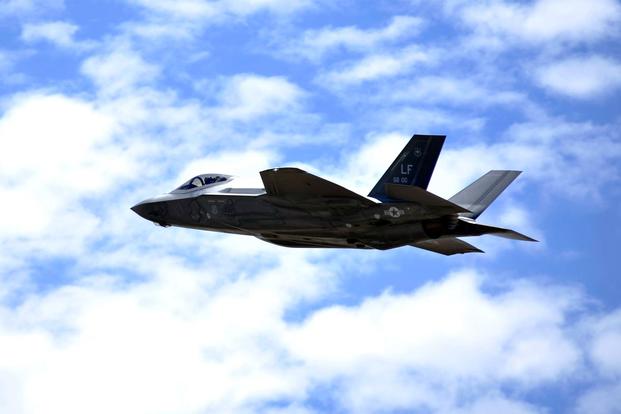The United States has halted shipments of F-35A Joint Strike Fighter equipment to Turkey after the NATO ally refused to back down from its intent to purchase the Russian-made S-400 surface-to-air missile system.
"We very much regret the current situation facing our F-35 partnership with Turkey, and the [Defense Department] is taking prudent steps to protect the shared investments made in our critical technology," Acting Chief Pentagon Spokesperson Charles Summers said in a statement Monday.
"Our important dialogue on this matter will continue, however, until they forgo delivery of the S-400, the United States has suspended deliveries and activities associated with the stand-up of Turkey's F-35 operational capability,"' Summers added. "Should Turkey procure the S-400, their continued participation in the F-35 program is at risk."
Reuters, citing anonymous sources, was first to report that Turkey would not receive additional equipment and supplies for the fifth-generation stealth jet as it continues with its plan to accept delivery of the S-400 by July.
"The United States has been clear that Turkey's acquisition of the S-400 is unacceptable," Summers continued. "Therefore, the DoD has initiated steps necessary to ensure prudent program planning and resiliency of the F-35 supply chain. Secondary sources of supply for Turkish-produced parts are now in development."
Officials at Luke Air Force Base, Arizona, had been preparing to receive two additional F-35As in coming weeks for its pilot-training program with Turkey. That move has also been delayed, according to a separate report from Bloomberg News.
Officials at Luke could not confirm the delay or provide any additional information by press time.
Related content:
- Luke Air Force Base Readies for Additional F-35s to Train Turkish Pilots
- Sale of F-35s to Turkey in Trouble, Dunford Confirms
- The Air Force Needs Army's Help to Best Russia's S-400 Missile Battery
The first group of Turkish pilots and instructor-pilots have already graduated from the U.S.-led training program with the 63rd Fighter Squadron. The second and third groups have begun entry-level training at Luke and in San Antonio, Texas, 56th Fighter Wing spokeswoman Maj. Rebecca Heyse told Military.com last week.
In recent weeks, Turkish President Recep Tayyip Erdogan said that his country -- which hosts Incirlik Air Base, a key Air Force hub -- will not reconsider its plans to purchase the S-400 SAM system, nicknamed the "F-35 killer" by Moscow. Reuters last month reported that U.S. state and defense department officials were already considering stopping the delivery of the F-35 to Turkey, set to take place between late summer and the end of the year.
Last week, a bipartisan group of lawmakers introduced legislation to ban the transfer of the F-35 to Turkey and bar future sales until U.S. is satisfied Turkey will not accept any S-400 systems from Russia.
"It's concerning that Turkey would seek close defense cooperation with Russia, whose authoritarian ruler seeks to undermine NATO and U.S. interests at every turn," said Sen. James Lankford, R-Oklahoma.
Lankford introduced the legislation alongside Sens. Jeanne Shaheen, D-N.H., Chris Van Hollen, D-Maryland., and Thom Tillis, R-N.C. "The prospect of Russia having access to U.S. aircraft and technology in a NATO country, Turkey, is a serious national and global security risk," Shaheen added.
The group first introduced a similar bill last year.
The most recent effort marks the fourth time lawmakers have attempted to halt or modify how the U.S. moves forward with Turkey on a cooperative F-35 program. In conjunction with Lockheed Martin Corp., the F-35's manufacturer, Turkish defense companies already help produce part of the plane.
Turkey wants to buy 100 of the F-35A variant used by the U.S. Air Force.
The country took delivery of its first F-35 last June in a ceremony at Lockheed's Fort Worth, Texas, facilities, amid legislative efforts to halt future deliveries. Two F-35s were then transferred to Luke for training.
In an effort to keep Turkey away from Russian-made weapons, the State Department in December approved the potential sale of the Patriot missile system and related equipment to the country for $3.5 billion.
-- Oriana Pawlyk can be reached at oriana.pawlyk@military.com. Follow her on Twitter at @oriana0214.










